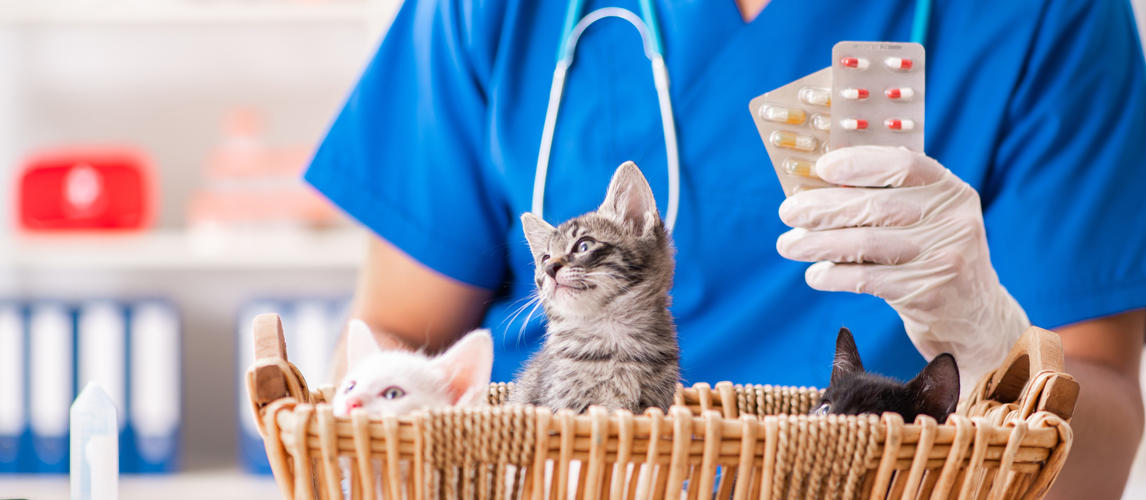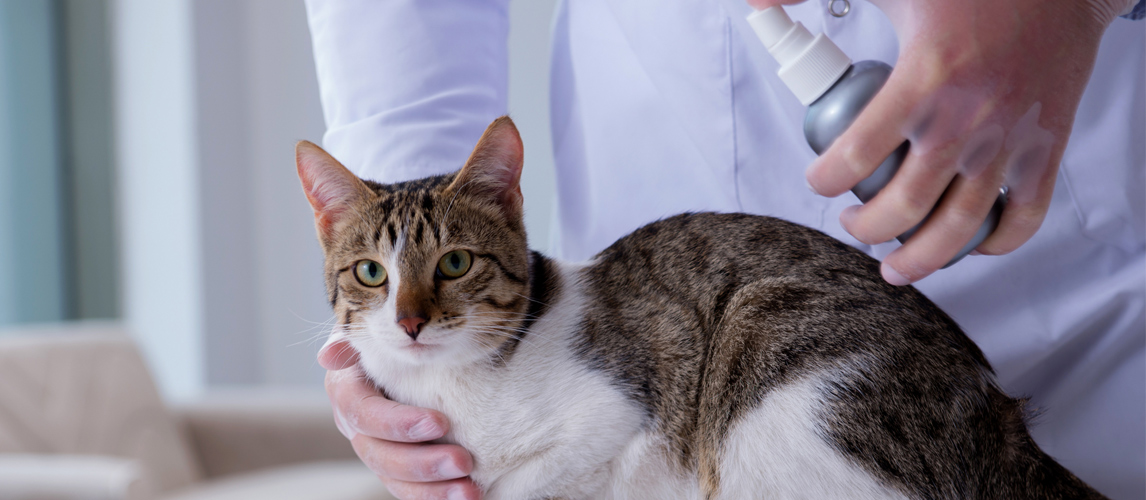It’s easy to panic if you’ve found your cat suddenly losing weight – and for good reason. There are a range of triggers that can cause your cat to lose weight quickly and ruling these out is key to finding out how to get a cat to gain weight. However, once these have been ruled out, there is no reason why learning how to fatten up a cat could be a bad thing.
On the contrary, it just shows how much you care about your cat, as learning how to make a cat gain weight can be a lot trickier than most would think. Luckily, you have us, and we’ve done all the research you could possibly need into how to help your cat healthily gain weight, and why weight gain for cats is so essential.
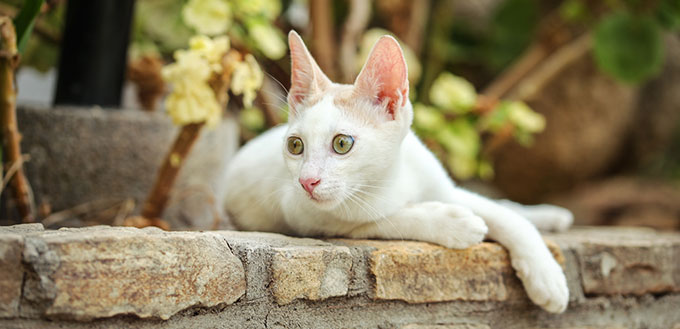
Why Is My Cat so Skinny?
There are a few reasons as to why your cat might suddenly be losing weight, and it’s always best to get anything sinister ruled out by your vet. That said, the most common causes for weight loss in cats can include:
- Parasites
Just like humans, cats can also get parasites that digest their food before your cat has a chance to. The most common of these is a tapeworm, which can grow to as long as two feet inside your cat before they break apart and are expelled through the anus.
- Diarrhea
As well as being a symptom of many illnesses, diarrhea in itself can be a problem that often stems from poor diet or a change in diet. If your cat’s diarrhea isn’t settled within a few days, it can lead to rapid weight loss and dehydration.
- Anxiety, stress and other mood issues
Cats are very sensitive creatures, and a change in behavior should always result in a trip to the vets. A common symptom of these issues is lethargy and disinterest in food, which leads to rapid weight loss.
- Diabetes
Another common problem in cats. When they aren’t able to digest their food properly, a cat can lose weight suddenly and quickly become very ill.
- Cancer
While most issues related to weight loss in cats aren’t necessarily due to cancer, it’s always worth taking a trip to the vet to rule this out.
- Digestive issues
If your cat has got into a scrap recently or has lost a tooth for any other reason, it’s likely to cause more issues down the digestive tract. Since chewing food is key to kickstarting the digestive juices, losing this ability can cause weight loss in your cat.
As we can see from just some of the issues related to weight loss, the problems that cause rapid weight loss in cats can vary greatly. If, however, your vet has given you the all-clear and you’re free to help your cat gain weight, then the rest of this article will be a great help in getting your cat back on track with their weight gain. Just remember that weight gain – like weight loss – is a case of taking it slow and steady, and watching how your cat responds to new foods and activities.
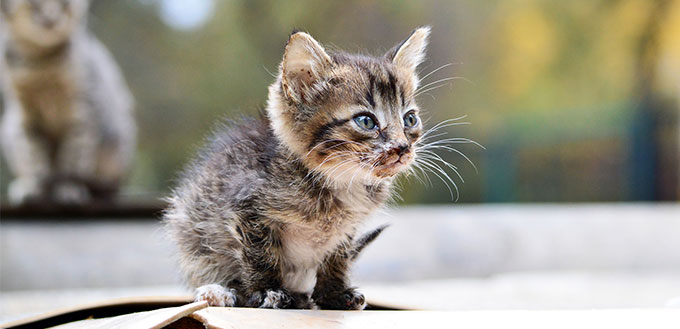
How Much is a Cat Supposed to Weigh?
Every breed will likely be very different in terms of your cat’s ideal weight, so checking the averages is the best way to ensure your cat is at the right weight. For example, a Maine Coon will likely be around 25 pounds at their healthiest, while a Siamese might be as little as 5 pounds and still be very healthy.
Most domestic cats, however, will range from about 8 to 14 pounds – and your vet should tell you if there are any issues with their weight. A better way of checking if your cat is at a healthy weight is to look at their body. A healthy cat will likely have an “hourglass” figure, when looking down at their body, and they shouldn’t have any sagging or excess weight around their belly, when looking from the side. You should also be able to feel their ribs when you stroke them with a little pressure but not have such little excess fat that you can see their ribs with the naked eye.
You May Also Like: High Calorie Cat Food for Weight Gain
How to Help a Cat Gain Weight
As mentioned above, weight gain for cats should be slow and steady – with a regular, incremental gain each week. Always follow your vets advice when it comes to how to make a cat gain weight and follow this article as a guideline only.
Firstly, most cats will lose weight when they are spending more calories than they are able to take in. If your cat has been poorly or is prone to weight loss, it may be worth limiting their time outdoors. While this can seem cruel for an outdoor cat, there are plenty of activities that you can encourage your cat to partake in, indoors to keep them entertained until they are at a healthy weight again.
Similarly, you will need to raise the number of calories they are ingesting on a day-to-day basis. A great way to do this is to offer your cat kitten food instead of their regular adult cat food. Kitten food is packed full of essential vitamins and minerals, and will usually have a higher level of protein than adult counterparts. Similarly, you can also opt for high-quality adult cat food that uses no fillers (such as grains) and comes packed with plenty of protein and fantastic, meat-based ingredients that your cat will love.
At the same time, try to feed your cat more often – but with smaller portion sizes. This will keep your cat full, without becoming too much for their stomachs, which is especially important if they are recovering from an illness. So, if you usually give your cat two, large portions of food, try giving them six, smaller meals (with an overall caloric increase – so slightly more food than their usual daily offering). This will help them stay healthy, while putting on weight and without causing more gastric distress.
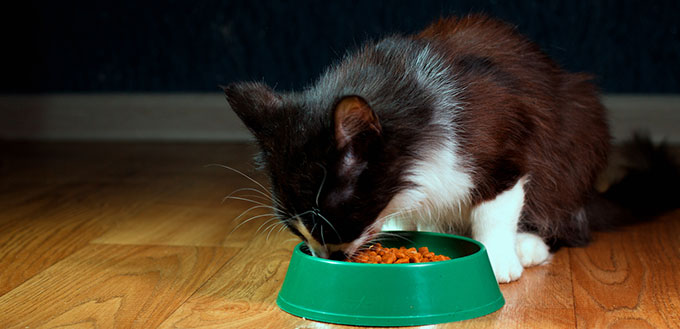
Final Thoughts on Cat Weight Gain
If you notice any other signs or symptoms while helping your cat to gain weight, take your pet to the vets immediately. Learning how to get a cat to gain weight is just one small step on their road to recovery, and you should always seek professional help with your cat’s personal medical history in order to help your cat gain weight without causing further issues.
More Pet Product Reviews
Cat Food for Constipation
Cat Food For Urinary Tract Health
Organic Cat Food
High Fiber Cat Food
Cat Food For Bengals
Hypoallergenic Cat Food
Cat Food for Kidney Disease
Cat Food for Indoor Cats
Cat Treats
Sources:
- Skinny Cats and Maldigestive Dogs, Illinois Vet Med
- Susan Leisure, Fattening Foods for Cats, The Nest
Note: The advice provided in this post is intended for informational purposes and does not constitute medical advice regarding pets. For an accurate diagnosis of your pet's condition, please make an appointment with your vet.



